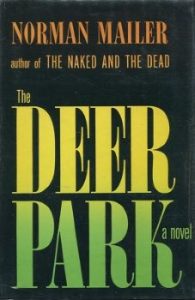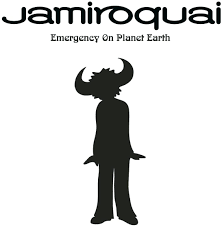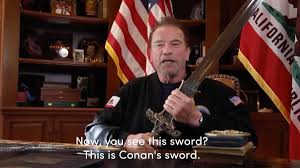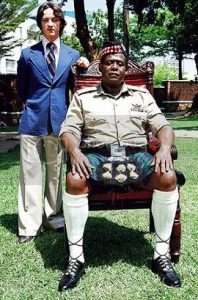
From wikipedia.org / © Gerald Lucas
I’m aware that some of the writers, artists, musicians and filmmakers whose work I admire were total arseholes in their personal lives. Possessing ‘artistic genius’, or just having an ‘artistic temperament’, was for them an excuse to commit all manner of heinous sins. Yet all I can do, I feel, is separate the art from the inadequate and disappointing personality that created it – and focus on and enjoy the former. As the writer Poppy Z. Brite (who sometimes goes by the name of Billy Martin) wrote recently about the author V.S. Naipaul: “Past a point, you can’t help what you love. Naipaul is my own problematic favourite, a sexist, racist, often unkind man, but I love his writing and he fascinates me as a person.”
To some extent, that sums up my feelings about that famous post-war American man of letters Norman Mailer, who would have been 100 years old today if he’d still been on the go. To say Mailer was problematic as a person is an understatement. From all the accounts the guy was a belligerent, egotistical, self-promoting, homophobic and misogynistic dickwad who lamented about ‘the womanisation of America’ and was preoccupied with the sort of toxic masculinity that, in the 21st century and as embodied by the likes of Putin and Trump, seems capable of threatening the continued existence of humanity.
Most notoriously, in 1960, he stuck a knife into his second wife, Adele Morales, enraged when she told him he wasn’t as good a writer as Dostoyevsky. Morales survived and divorced him two years later. For that reason, my partner never refers to Norman Mailer as ‘Norman Mailer’, but as ‘Stabby’.
Among other things on Mailer’s charge-sheet, in 1981 he was instrumental in securing parole for murderer, bank robber and forger Jack Abbott. Abbott was also a writer, which for Mailer apparently righted all his other wrongs. Six weeks after his parole, Abbott stabbed to death a waiter following an argument about whether or not he could use a café’s toilet.
And yet… I’ve always enjoyed Mailer’s books when I’ve come across them, to greater or lesser degrees. This is despite – or if I’m in the right mood, because of – the rampant egotism of their author often finding its way onto their pages.

© Rhinehart & Company
Mailer’s first novel The Naked and the Dead (1948) is to my mind one of the great novels written about World War II. Mailer wrote about it from experience, as he’d been posted to the Philippines with the 112th Cavalry. It made an impact on me with its pessimism, which isn’t just about human nature when it’s put under hideous pressure in a theatre of war. The pessimism also concerns the current, and likely future, condition of the USA, which is symbolised by the platoon at the centre of the plot. They represent an assortment of different ethnic and regional groups that make up American society – Jewish, Italian, Irish, Mexican, Southern – and they generally don’t like or trust each other. In charge of them are a psychotic sergeant, an educated and liberal-minded lieutenant and, at the top of the chain of command, a fascistic general who believes the war against Japan is soon going to morph into a war against the Soviet Union. The enlightened lieutenant offers the novel its one sliver of hope, but that hope is abruptly snuffed out in a plot-twist some way before the end.
However, even if you find the political allegory in The Naked and the Dead clunky, there’s no denying that it conveys the numbing physical exhaustion of warfare – especially a war fought in a jungle on a tropical Pacific island. If George Orwell’s Homage to Catalonia (1938) gets across the idea that more than anything else war will leave you bored witless, The Naked and the Dead persuades you that it’ll leave you utterly knackered too.
One unfortunate feature of the novel, and something that modern-day readers will no doubt find hilarious, is that Mailer had to pepper his prose with the word ‘fug’, an invented substitute for the F-word. Warned by his publishers that the dialogue of his soldier-characters couldn’t be too realistic, even though in a real combat zone hard-pressed soldiers would be spewing the F-word endlessly, Mailer ended up having them say things like ‘Fug you!’ and ‘Fugging hell!’ It must have stuck in Mailer’s craw – and Mailer had a big craw for things to get stuck in – when, later, he was introduced to the celebrated writer and wit Dorothy Parker and she exclaimed, “So you’re the young man who can’t spell f*ck!”
A decade after its publication, The Naked and the Dead was turned into a movie. It’s a prime example of Hollywood taking something with an uncompromising message and watering it down to make it more palatable to mainstream cinema audiences – and losing what made the original effective in the process. Not only does the lieutenant (Cliff Robertson) survive at the end but, if I remember correctly, he gets to make an inspirational speech about the value of everyone pulling together. However, Mailer was already aware of the rottenness of Hollywood and in 1955 had written a novel on the topic, The Deer Park. This was the era when the House of Representatives’ Committee on Un-American Activities was at its most powerful and the notorious Hollywood Blacklist was ending filmmakers’ careers, events that are referred to in his book.

© G.P. Putnam’s Sons
I don’t remember much about the plot or characters of The Deer Park, but I recall the vividness of its setting, Desert D’Or, a desert town that’s become a fashionable resort and refuge for Hollywood bigwigs. Its existence as a pocket of lavish make-believe amid the desert’s harshness is matched by the artificiality of its inhabitants, who are an immoral, scheming, backstabbing, bullying lot. Wikipedia informs me that the novel’s title “refers to the Parc-aux-Serfs (‘Deer Park’), a resort Louis XV of France kept stocked with young women for his personal pleasure”, which seems appropriate.
Unsurprisingly, when the 1960s began to swing with sex, drugs and rock ‘n’ roll, and the Vietnam War, Mailer took to the decade like a duck to water. At a young and impressionable age – 17 years old – I read Mailer’s Armies of the Night, in which he recounts how he marched on the Pentagon in October 1967 and told the US government to stop the war in Vietnam. To be honest, Mailer did have a bit of help here. About 100,000 people marched with him, including Allen Ginsburg, Abbie Hoffman and Jerry Rubin, who tried to use concentrated, psychic hippie-power to levitate the Pentagon building and ‘exorcise the evil within’.

© Penguin Books
A ’fictionalised work of non-fiction’, Armies of the Night was the first such book I’d encountered and it took me a while to get used to its central conceit, wherein Mailer describes what happened at the march not as some omnipotent narrator, or in the first person, but in the third person, so that he becomes a character in the action itself. Yes, it’s a memorable device but, inevitably with Mailer, it’s self-aggrandising too. At one point, possibly inspired by Armies of the Night, I wrote entries in my journal for a few months in the third person. Years later, when I re-read what I’d written, my main thought was: “What a big-headed wanker I must have been back then.”
Mailer was in the first person for the next book by him I’ve read, also a work of non-fiction, 1975’s The Fight. This is about the ‘Rumble in the Jungle’, the famous boxing match between Muhammad Ali and George Foreman (who, to a younger generation, is primarily known as the inventor of the George Foreman Lean Mean Fat-Reducing Grilling Machine). With Ali at his peak, and Foreman at his meanest and most lethal, this was, for boxing fans, an epic event. It was also a grotesque one, because one of the 20th century’s most opulently corrupt dictators, Zaire’s Mobutu Sese Seko, hosted the fight in his country. Sparing no expense, Mobutu also flew in some of the world’s greatest musicians, like James Brown and B.B. King, for a musical gala to accompany it. And it was no surprise that the world’s biggest literary ego, Mailer, rocked in too to write a book about it.
While I prefer the 1996 documentary When We were Kings (to which Mailer contributes) as the definite account of the Rumble in the Jungle, I think The Fight is pretty good. Mind you, with so much going on in Zaire at the time, Mailer could hardly fail to write an entertaining book about it all. And it does provide a fascinating insight into the mind of the man who called himself the greatest… The book mentions Muhammad Ali a few times as well.

Random House USA Inc
Having read one Mailer book from the 1940s, the 1950s, the 1960s and the 1970s, it’s fitting that the last of his works I’ve encountered is from the 1980s, 1984’s Tough Guys Don’t Dance. Mailer didn’t take the writing of this novel terribly seriously. It was something he dashed off in two months, to fulfil a contract, and is very obviously a pastiche / piss-take of the crime-thriller noir genre, vaguely in the tradition of Mickey Spillane and Raymond Chandler. Its plot twists all over the place before, unconvincingly, the hero’s dad – a no-nonsense hard man, but with a heart of gold, no doubt representing Mailer’s own image of himself – pops up out of nowhere to sort everything out.
I thought it was basically rubbish, then, but it was enjoyable rubbish. Maybe I liked it because, as with Tough Guys Don’t Dance’s hero Tim Madden, I was going through a hard-drinking phase at the time, waking up occasionally with a raging hangover but no firm idea of what I’d ended up doing the previous night. Thus, I could relate to what Madden goes through in the book. Though unlike Madden, I never woke up to find (1) an inexplicable tattoo on my body that hadn’t been there before, and (2) an inexplicable severed head in my possession that hadn’t been there before, either – the events that set the story in motion.
One thing that’s genuinely good about Tough Guys Don’t Dance is its setting, which is Provincetown in Cape Cod, Massachusetts – in real life Mailer had a house there, in Commercial Street. He nicely captures the eeriness of the place when the summer weather has receded and the tourist season has ended, when ‘one chill morose November sky went into another’ and, seemingly, the town’s ‘true number of inhabitants must be thirty men and women, all hiding’.

© Penguin Random House
Three years later, Mailer got the chance to turn Tough Guys Don’t Dance into a movie, which he directed, and co-scripted with the distinguished screenwriter Robert Towne, and with Francis Ford Coppola’s Zoetrope Studios as one of the production companies. Sounds good, yes? Well, no. The producers were Menahem Golan and Yoram Globus of the notorious Cannon Group, whose previous meisterwerks included Breakin’ 2: Electric Boogaloo (1984), Bolero (1984), Invasion USA (1985), Cobra (1986) and Death Wish 4: The Crackdown (1987). And despite the talent involved, Tough Guys Don’t Dance definitely bears the Cannon imprint most strongly in terms of quality. It’s a delirious slice of so-bad-it’s-good campness.
Thus, you get a party sequence, which appears to be Mailer’s idea of what a decadent 1980s shindig would be like – yuppies with feather-cut hairdos cavorting like arthritic elephants to some god-awful 1980s soft-rock music while nose-hoovering cocaine off the tabletops and brazenly opening the front door stark-naked because they think it’s their ‘boyfriend’. (No, it’s actually the local police chief, played by Wings Hauser, come to ask them to turn the noise down.) Still, I’m told that Mailer filmed much of the movie at his own house in Provincetown, so maybe he did hold parties like this. Then there’s the scene where Madden (Ryan O’Neal) finds out about his wife’s infidelity and reacts with a jaw-dropping display of bad acting – “Oh man! Oh God! Oh man! Oh God!” – which, over the years, has become so infamous it’s now an Internet meme.
To be fair to O’Neal, almost everyone in the film is having a bad-acting day. This ranges from the way-over-the-top ‘southern’ accents sported by Debra Sandlund and John Bedford Lloyd – “Madden, take it in the mouth or you’ll die. Will you take my pride and joy into your mouth?” – to the stilted awkwardness of just about everyone else (Hauser, Isabella Rossellini, Frances Fisher) as they try to get their tongues, and their minds, around Mailer’s dialogue, which is largely fixated on performing the sex-deed with adequate levels of manliness. At one point Rossellini tells O’Neal that she and her husband, Hauser, “make out five times a night. That’s why I call him Mr Five.” Though this is contradicted when Rossellini and Hauser have an argument. “I made you come 16 times – in a night.” “And none of them was any good!”
On the plus side, Lawrence Tierney gives a solid performance as Madden’s dad. I’ve read somewhere that after seeing him in this, a young Quentin Tarantino decided to hire him for Reservoir Dogs (1993). Also, Mailer adds some supernatural elements that I don’t recall being in the book, and ramps up the general weirdness, so that the film becomes an oddly prescient mixture: a superficially sleepy little town, dark secrets, murder, drugs, violence, corruption, the uncanny, the strange… There’s even a creepy forest where O’Neal has hidden his marijuana stash. Yes, three years before the real event, did Mailer accidentally create the prototype for David Lynch’s Twin Peaks (1990-91, 2017)?

© Zoetrope Studios / Golan-Globus
Like Captain Ahab and his whale, Mailer spent his literary life pursuing that elusive beast, the writing of the Great American Novel. Though the critical consensus is that he never managed it, he did produce some very big books along the way, like Ancient Evenings (1983) and Harlot’s Ghost (1992), neither of which I’ve read – and with them weighing in at 709 and 1168 pages respectively, I doubt if I ever will read them. Nonetheless, I suspect I’ll find myself perusing Mailer’s other, more digestible books in future, because basically I enjoy his stuff. My partner may not approve, but there are still works by old ‘Stabby’ that I’d like to have a stab at.
And the only possible reaction to that distasteful pun is: “Oh man! Oh God! Oh man! Oh God!”





